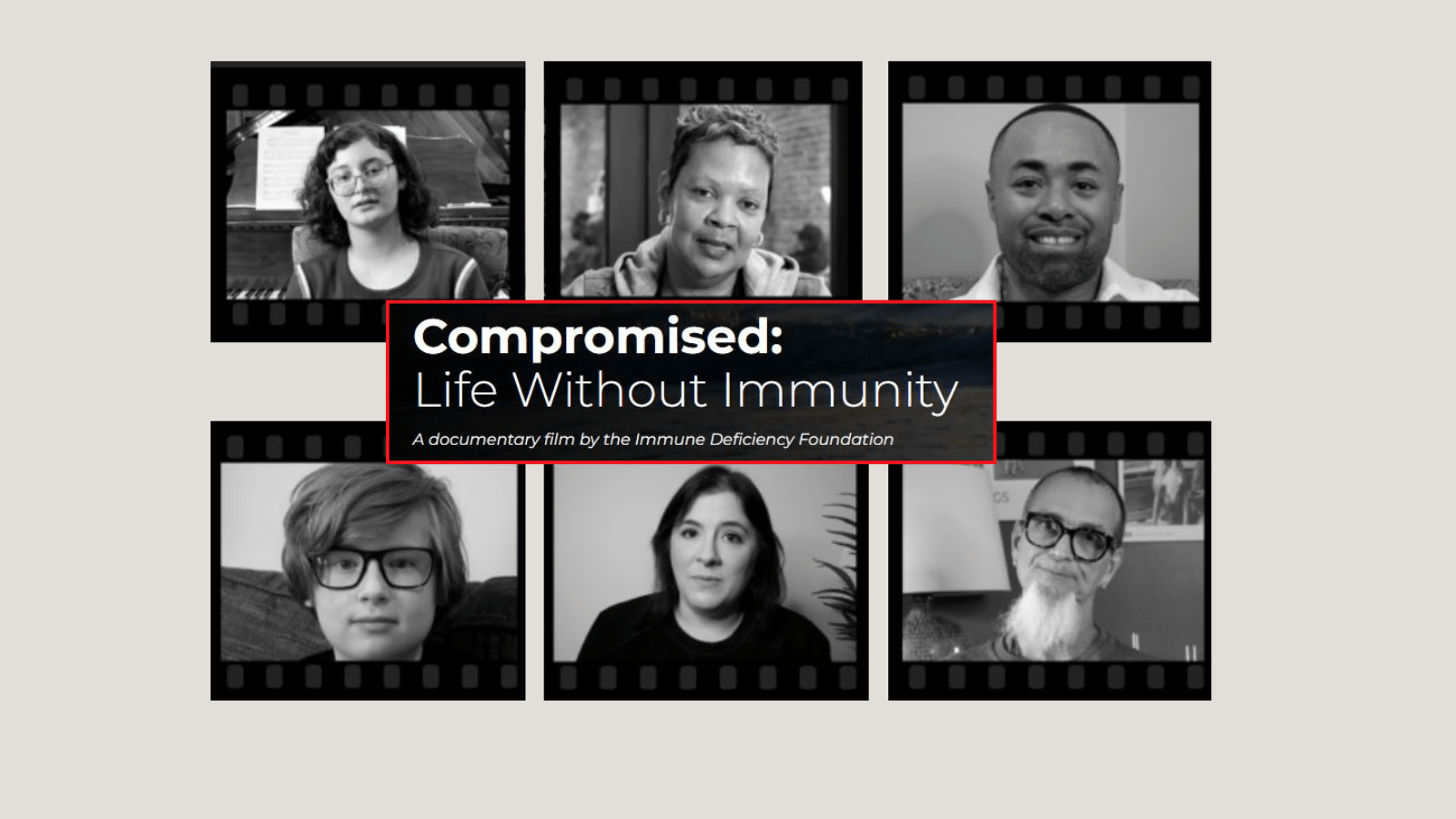A new documentary explores the lives of patients who have primary immunodeficiency diseases (PID) and underscores the resilience required to navigate life without a fully functioning immune system.
Eleven-year-old Ben Everett has anxiety about missing an infusion. Shane Brisson has been hospitalized more times than he can count. Dionne Stalling is managing nine rare conditions, and Victoria Medl is seeking compassion from people for being so sickly. “Compromised: Life Without Immunity,” directed by filmmaker Zachary Moore and produced by the Immune Deficiency Foundation (IDF), follows six patients who are living with PIDs and who refuse to let their illnesses define or limit them.
The IDF calls the film “heartbreaking yet hopeful” and said it celebrates the “extraordinary resilience of the human spirit and the urgent need for greater awareness and support in the medical community.”
Register here to watch on April 25th, during World PI Week.
Primary immunodeficiency isn’t a single disease. It’s a group of 500+ rare, chronic disorders that have something in common: Parts of the body’s immune system are missing or do not function correctly. Immunoglobulin infusions, administered intravenously (IV) or subcutaneously, are a treatment option.
People who live with primary immunodeficiencies experience frequent infections that are difficult to treat, keep coming back or are severe or unusual. PIDs are genetic, and having a family history is the biggest risk factor for developing one. Specialists stress early diagnosis and ongoing medical support are critical.
The film shows a day in the life of Ben, a young patient, who gets up early for his infusions. He has common variable immunodeficiency (CVID).
“An infusion day usually starts between 7:00 a.m. and 9:00 a.m.,” said Ben’s mother, Kim Everett. She said he worries about missing an infusion and falling into a spiral of sickness.
While patients are the focus, the film also features medical professionals working hard to diagnose and treat patients while researching new and better treatment options. Diagnoses and treatment are often complex. Many patients receive an unspecified diagnosis, Dr. Manish Butte said in the documentary. The immune system remains vast and not fully understood.
“We're trying to move away from unspecified. We do recognize that we have limitations and how much we know today. And our future selves will look back on our past selves and slap their foreheads in awe at how little we understood about the development of the immune system and how we protect ourselves from infection,” said Butte, an immunologist and division chief of pediatric immunology, allergy and rheumatology at the University of California, Los Angeles.
A lack of immunologists further complicates the patient journey, he said.
“For example, of the 120 or so fellows who go into allergy and immunology training every year, only about three or four or five of them finish that training and stay in immunology, whereas the other 120 or so go off to do allergy. That's not enough,” Butte said.
The film is a call to action to raise awareness among the public and mobilize the health care community to recognize and diagnose PIDs. The IDF will show the film during World PI Week on April 25th.



